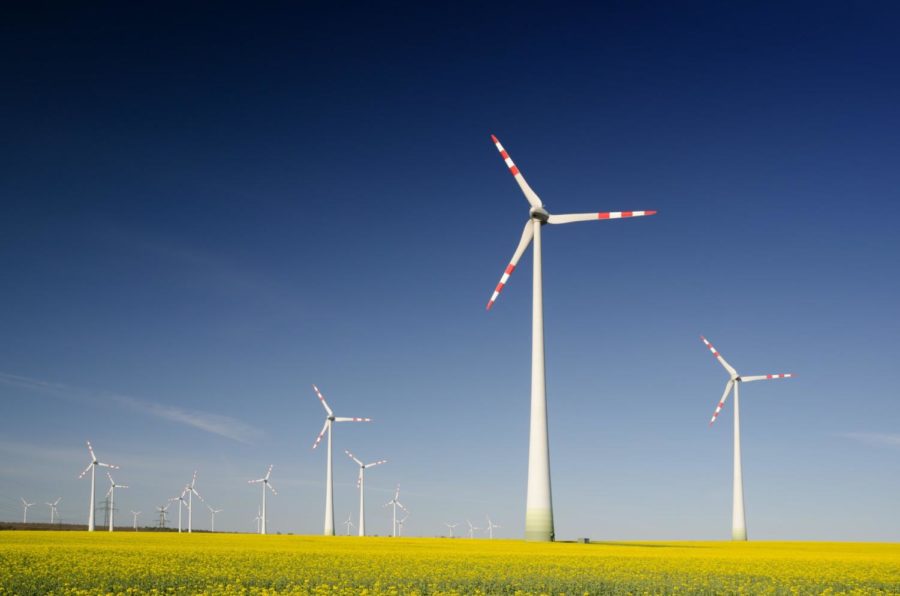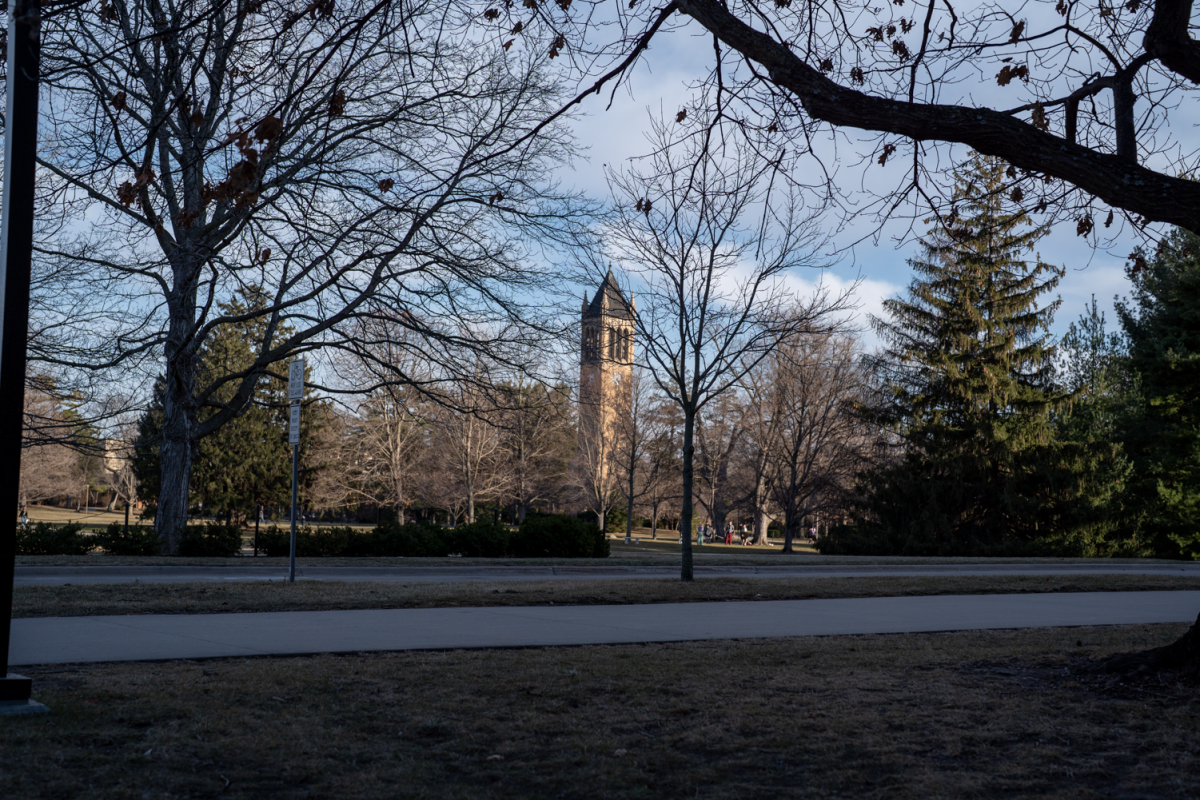I am writing today to reach out to those who know climate change to be a threat but are paralyzed by fear or feel there is nothing one individual can do to stop the catastrophe already coming upon us. I am writing to ask you, “Why allow beauty to be harmed?” The lively birds singing in the morning, the vibrant coral providing sanctuary for an abundance of life, the soil microorganisms giving enrichment for plants above, and most importantly, the beautiful smiles of your fellow peers enjoying existence on this miracle planet of life given to us. Why do nothing to prolong this beauty?
Life isn’t perfect, far from it. There are many dark, disgusting problems to be worked on. But I genuinely believe we need the best environment possible to tackle these problems plaguing humanity. Climate change is hard to understand. It is the intangible, constant change of the probabilities of different atmospheric conditions. It was here yesterday, today, and will be here tomorrow. It doesn’t have a face to punch or an easy scale to measure. But it is the largest monster touching all problems to care about.
Climate change is responsible for the deaths of many people, and it will continue to kill. It will continue to maim, destroy and ravage communities. Beauty has and will continue to be harmed by an increasing number of natural disasters, food shortages and conflicts: all made more frequent by climate change.
But you may have already known all this, and be thinking this article isn’t very positive, nor has it listed a call-to-action yet. I wanted to ensure you got the impression of what is at risk. I have met you, talked with you and encouraged you to do great things with your fellow students. The reason I’m writing this article is for you, because you respond that things are hopeless, or you don’t see how an individual can do anything compared to the actions of global corporations and politicians. I want to remind you that all large revolutions and movements have been the work of many individuals, each doing their own part in a larger motion that changed conditions for the better.
My challenge to you is to do something to improve our chances against climate change. Talk to your friends or family about climate change, attend a meeting of local activists, write your representatives, vote for leaders who will work to bring about progress, anything that is additional to what you are doing right now. If we all do a little bit more, a little bit more beauty will be protected for a little bit longer.
I am not trying to put too much weight on the individual when corporations or governments should do much more. But I can’t change them myself. It will require groups of individuals to bring change to these larger organizations.
So, I leave you today with hope. Hope that you and your peers and me and my peers will be the continuation of something much bigger than ourselves.














Renate Dellmann | Sep 26, 2023 at 1:32 pm
According to a Report of the European Union the main drivers of climate change are fossil fuels, deforestation, and industrial agriculture, especially livestock.
SO, what can we as individuals actually do?
We can decide to cut the number of miles we drive in half by planning our trips more carefully and walk, bike, and use public transportation as much as possible.
We can plant as many trees as possible through all avenues available and adopt young trees for five years by regularly watering them
We can oppose the cutting of mature trees whenever there are alternatives to protecting them (witness the folly cutting down our urban forest along Duff Ave)
we can reduce the amount of meat we eat, or become a vegetarian
We can support and vote for those who
a. )protect natural areas
b) try to increase their numbers and acreage
It does not sound like much, and we must be aware that there are stiff headwinds whenever a basic change in how we live our lives is suggested . But many grains of sand make a beach, and every effort we make is worth it
Thank you for listening
David Jackson | Sep 27, 2023 at 10:16 pm
“we can reduce the amount of meat we eat, or become a vegetarian”
No. How does the livestock population’s methane production compare to pre-industrial ruminant populations, and how much grasslands would produce if they rot if not consumed by such animals? Livestock is not a significant contributor to climate change. It’s a farce to use the claim of an emergency to push plant based diets by force.
Susie | Sep 30, 2023 at 1:18 am
Nuclear solves near all of your issues. Too much fear-mongering by oil companies and HUMAN ERROR have caused far less damage in terms of nuclear harm / total impact than our use of fossil fuels. It is time to continue the switch.
go to (w.)(w.)(w.)energy.gov/ne/articles/3-reasons-why-nuclear-clean-and-sustainable
Susie | Sep 30, 2023 at 1:20 am
Nuclear energy holds significant promise as a key component of our future energy landscape. There are several compelling reasons for this. First and foremost, nuclear power generates electricity with minimal carbon emissions, making it a critical contributor to global efforts to combat climate change. Unlike fossil fuels, nuclear reactors do not release greenhouse gases during operation, which aligns with our imperative to reduce carbon footprints.
Additionally, nuclear power plants are renowned for their reliability. They operate at high capacity factors, often exceeding 90%, ensuring a steady and dependable energy supply. This reliability is crucial in meeting the constant energy demands of our modern societies.
Moreover, nuclear energy boasts an extraordinary energy density. A small quantity of nuclear fuel can produce a substantial amount of electricity, reducing the need for large fuel supplies and associated transportation and storage logistics.
Furthermore, nuclear power is well-suited for providing base-load electricity, which is essential for meeting the minimum energy demand of a region. This complements intermittent renewable sources like wind and solar, which can be less predictable.
In terms of energy security, nuclear energy diversifies our energy mix and reduces our dependence on fossil fuels, particularly in regions heavily reliant on imported oil and gas. This diversification enhances both national and global energy security.
The long-term sustainability of nuclear energy is also noteworthy. With advanced technologies like breeder reactors or thorium reactors, nuclear fuel has the potential to provide energy for millennia, in stark contrast to finite fossil fuel resources.
Furthermore, nuclear power plants do not emit air pollutants, such as sulfur dioxide (SO2), nitrogen oxides (NOx), and particulate matter, which can have detrimental effects on air quality and public health.
That being said, it’s important to acknowledge the challenges and concerns associated with nuclear energy, including nuclear waste management, high upfront costs, safety risks, and public perception. The future of nuclear energy will depend on our ability to address these challenges while prioritizing safety and environmental sustainability.
In summary, nuclear energy offers a promising path forward in our pursuit of a clean, reliable, and sustainable energy future. It’s essential to balance its advantages with the need for stringent safety measures and responsible waste management to fully harness its potential.